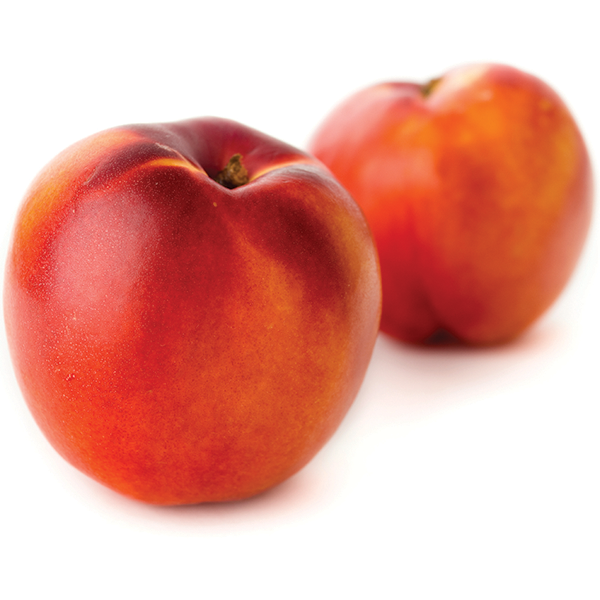
Fewer than 5% of nectarines are organic. Organic nectarines are a small part of organic produce sales. However, when paired with other stone fruit, especially during the summer, the whole category can add to your department’s sales.
Promote organic stone fruit as a whole. Include organic nectarines in promotions with organic peaches, plums and apricots. Add nectarines to salad promotions by cross-merchandising them with organic bagged salads.
Nectarines add plenty of flavor to drinks and smoothies. Include them in promotions that encourage consumers to try smoothies. Cross-merchandise them with organic yogurt and other organic fruits like berries.
Include organic nectarines in grilling promotions as they grill well. Offer promotions that include organic meat and nectarines. Promote organic nectarines to parents as a way to send a healthy, sweet treat in the lunch box.
Create an organic stone fruit display that includes peaches, plums, nectarines, apricots and cherries. Consider placing organic stone fruit on one side of the display and conventional product on the other side. This allows for a larger display but keeps the two types from mingling.
Include both orange-flesh and white-flesh organic nectarines in your display. Offer samples to allow consumers to taste the difference between the two varieties. Be sure to clearly label each variety.
Keep unripe fruit off of refrigerated tables as the cold will stop the ripening process. They are also fragile, so don’t stack them or dump them on the display. Post signs telling consumers how to ripen the fruit at home and to avoid putting unripe fruit in the refrigerator.
Shipping
Organic nectarines are available in both white-flesh and orange-flesh varieties. White-flesh are often shipped in 18-pound cartons while yellow-flesh are often available in 18- and 25-pound cartons.
Grades
U.S. Fancy
U.S. Extra No. 1
U.S. No. 1
U.S. No. 2
Handling
Temperature: 31 to 32 F, -0.6 to 0 C
Relative humidity: 90-95%
Mist: no
Typical shelf life: 14 to 21
Holding nectarines at room temperature for two to three days will usually be enough to complete the ripening process. Ripening at 65 F (18 C), is optimum, but a range of 51 to 77 F (10.6 to 25 C) is safe.
Nectarines are susceptible to dehydration and should always be stored and displayed away from drafts.
Russeting or staining of the skin may affect appearance but not detract from internal quality.